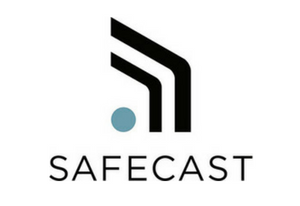
It’s an issue that’s highly personal to him: he is a child of Hiroshima, where the United States dropped the first nuclear bomb.
“My grandfather was president of the Hiroshima University of Literature and Science, later to be Hiroshima University,” he said. “My grandfather, Arata Osada suffered by A-bomb in Hiroshima. My mother visited Hiroshima next day looking for her father. She was suffering from strong contamination. So they are tracking me, monitoring me, because I am a child of Hiroshima.”
Today, he serves as an adviser to Safecast, a nonprofit global network that collects and shares radiation measurements. The group has built Geiger counters and distributed them to volunteers in Japan to measure radiation levels.
The effort, he said, is crucial to ensuring that radiation readings are accurate, and shared with the public.
It’s a program, he notes, that could never be possible without the Internet, which he says allows scientists to easily share data as well as their ideas about accuracy and risk.
“It’s about powering the diversity of wisdom, and people working together to solve things,” he said. “We are not interested in money. We are interested in the truth of the data.”
